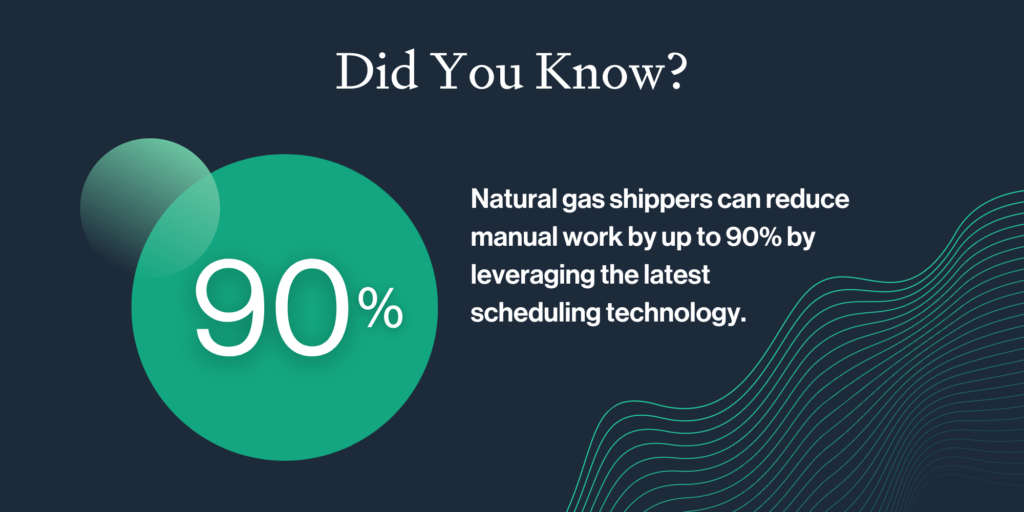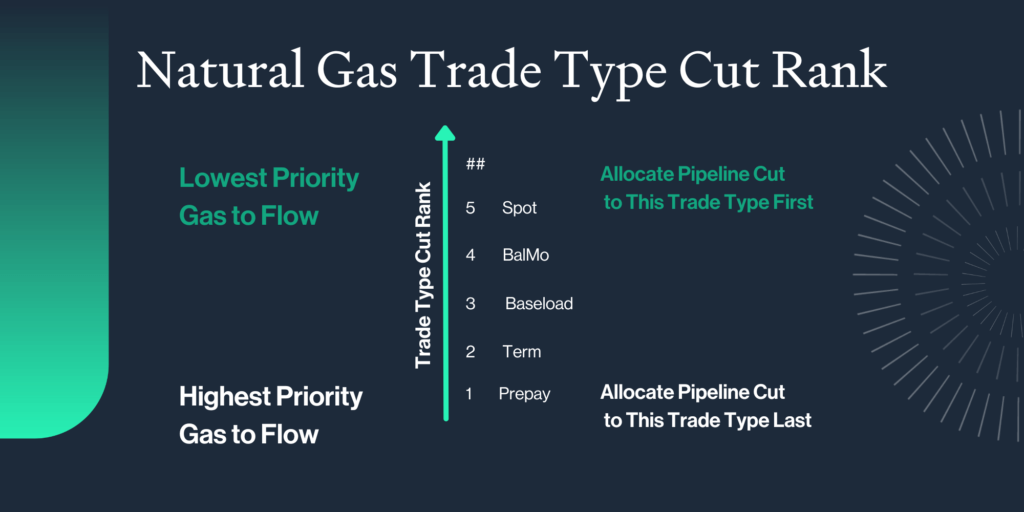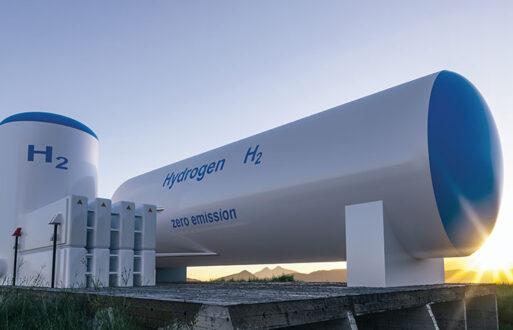Natural gas scheduling is a complex process that ties together traders, pipelines, shippers, and more. Historically an incredibly manual workflow, new innovations are transforming the way scheduling teams operate.
This comprehensive guide will walk you through:
- Demystifying the key concepts in natural gas scheduling
- How new technology is automating and optimizing workflows
- Tips and best practices for human schedulers
- Ensuring accurate tie-outs to pipelines
- Quantifying the cost savings from increased efficiency
Whether you’re new to gas scheduling or a seasoned pro, this guide will equip you with the knowledge and tools needed to streamline your operations.
Natural gas scheduling 101

Let’s start by reviewing some key concepts and terminology involved in natural gas scheduling:
Traders: Procure natural gas supply and transportation to meet demand requirements. They negotiate deals to buy and sell gas in the wholesale market.
Scheduling: The process of nominating and confirming deliveries of gas along pipeline transportation paths. Schedulers take the trades made by traders and turn them into scheduled pipeline deliveries.
Nominations: Formal requests made to pipelines to transport gas between receipt and delivery points on their system. Nominations specify the volume to be transported, the transportation contract used to move the gas, and the nomination cycle.
Allocation: After nominations are approved by the pipeline, the confirmed scheduled volumes need to be allocated back to the original gas nomination records and trade deals. This ensures all systems tie out.
Gas day: The day the physical gas flow occurs. Nominations are made prior to the start of each gas day. The NAESB standard time for the gas day is 9 a.m.-9 a.m. (Central time).
Nomination cycles: As defined by FERC, natural gas pipelines provide several daily cycles (time windows) to allow shippers to refine and resubmit nominations. This helps to resolve cuts due to supply or pipeline operation issues.
Fuel loss: Each pipeline will publish a fuel loss rate percentage to compensate for lost and unaccounted for gas. The gas volume at the delivery point will be less than the receipt point volume due to the fuel loss. Imbalances: When the actual gas usage (power plant burn, gas consumption, etc.) and actual scheduled delivery volume does not match over a designated period (hourly, daily, or monthly), creating excess or shortfall.
Accurate and timely scheduling requires close coordination between producers/shippers on one end, pipelines in the middle, and end users like power plants or LDC city gates on the other end. Technology plays a key role in seamlessly connecting these parties.
What is a natural gas schedule and what does it do?
A natural gas schedule refers to the planned receipts and deliveries of gas across a pipeline system over a given timeframe. Natural gas scheduling is the process by which these receipts and deliveries are planned, nominated, and coordinated.
The schedule is the end result — the final quantities expected to flow between receipt and delivery points on a gas day, which coordinates the physical movement of natural gas across the pipelines’ network.
What is a natural gas scheduler and what do they do?
Natural gas schedulers act as the bridge between natural gas traders and the pipelines transporting the gas. Schedulers take the natural gas that traders have acquired through deals and facilitate delivering it to customers.
Key responsibilities of natural gas schedulers include:
- Analyzing upcoming gas supply, demand, and pipeline operating conditions to determine transportation requirements
- In the scheduling software, create movement records to model the gas flow path for each natural gas trade and build the pipeline nomination.
- Submitting nominations to pipelines requesting to transport specific volumes for the following gas day, or throughout the current day, by the Federal Energy Regulatory Commission (FERC) defined nomination cycle deadlines.
- Confirming final approved pipeline schedules and allocated volumes back to original deals
- Managing changes to nominations based on changes in supply, demand, or pipeline operational conditions, and working with pipelines to avoid reductions (cuts) in scheduled volumes.
- Ensuring inventory, contracts, and invoices reflect completed gas movements
- Providing scheduling data and analysis to traders, risk managers, and executives
- Continually finding ways to optimize the scheduling process and maximize efficiency
The role requires both detailed technical knowledge of gas transportation and strong coordination skills to sync all parties. Schedulers leverage both software tools and industry relationships to ensure customers reliably receive the natural gas they need. Their oversight of the scheduling process is critical to the business operations of natural gas shippers, utilities, power generators, and more.
How technology is transforming natural gas scheduling
For decades, natural gas scheduling has been an incredibly manual process for shippers. Schedulers have had to:
- Set up receipts and deliveries for each movement in their system
- Manually enter nominations into each pipeline’s portal or fax in their nomination request
- Phone or email back and forth with counterparties to coordinate
- Check pipeline websites for final schedules and download
- Manually reconcile and update the actual scheduled volumes in their system
This tedious process involved major time commitments and high likelihood of human error.
But PCI’s innovative solutions are transforming gas scheduling, bringing automation to formerly manual workflows, such as:
Path templates: Frequently used path movements between standard points can be set up as templates, allowing new movements to be created with a few clicks.
Pipeline interconnects: Modeling points where pipelines connect to each other, visually simplifying scheduling gas across multiple pipes. The interconnect functionality was integrated into the path movement templates.
Download pipeline tariff data: The fixed and variable transportation rates, fuel loss percentages, and meter data can be pulled directly from the pipelines into energy trading and risk management systems instead of manually input.
Automated nominations: Nominations are generated and submitted to pipelines automatically from the energy trading and risk management system based on path movement records instead of through pipeline portals.
Auto-allocation: Once pipelines confirm the actual schedule volumes for each nomination cycle, these volumes can be downloaded into the system and allocated back to the original trade deals.
These innovations provide several benefits, including:
- Massive time savings: Automation reduces manual work by up to 90%
- Improved accuracy: Minimizes human data entry errors
- Increased flexibility: Easy to adjust on the fly as trades and deals change
- Better optimization: Use latest pipeline data like fuel loss rates
- Tighter integration: Links trading, transport, contracts, and billing
Natural gas shippers leveraging the latest scheduling technology like our Gas & Fuels Management solution have scheduling processes that are more efficient, cost-effective, and error-free than ever before.
Natural gas pipeline scheduling tips and best practices
While automation handles much of the busy work these days, human gas schedulers still have an important role to play. Below are some key tips and best practices for smooth scheduling operations.
- Coordinate with counterparties early: Discuss coordination plans and resolve potential issues well before the nomination window. Services like ICE Instant Messaging are great for communications.
- Submit nominations early: Early nominations can help identify any pipeline nomination mismatches to resolve with the other counterparty and prevent a cut.
- Review pipeline notices: Check pipeline websites and portals throughout the day for operating conditions that could impact nominations or cause cuts.
- Check cuts after confirmation: If cuts are made, quickly determine if resubmitting in additional cycles makes sense based on demand requirements or if the flow path of the gas needs to be modified
- Adjust strategy as needed: Changing conditions like weather may require adjusting nomination volumes and transportation paths.
- Fix root causes: If certain locations/pipelines continuously cut your nominations, investigate why and resolve the underlying issues.
- Share data internally: Keep power schedulers, traders, risk, and settlements aligned to ensure you’re meeting operational and financial objectives.
While some portions of the job have been replaced by automation, schedulers still play a critical strategic role in ensuring natural gas gets where it needs to go. Leveraging technology alongside human expertise is the key to success!
Ensuring accurate natural gas pipeline reconciliation
After going through the scheduling process, it’s crucial that pipeline nominations and scheduled quantities reconcile accurately with customers, counterparties, invoices, and everything in between. Differences can lead to major financial problems down the line.
Ideally, scheduling systems should automatically:
- Download confirmed scheduled receipt and delivery volumes from pipelines
- Allocate the scheduled receipt and delivery volumes back to the original deals/trades
- Handle volume reductions (cuts) appropriately
- Maintain detailed audit trails of changes
- Download the location’s actual meter volume from the pipeline.
Pipeline cuts should be allocated based on the trade’s price and the preferred trade type prioritization rules, such as:
- Apply the cut to the spot/swing trade types first and keep the baseload trade types whole
- Then cut the highest price spot/swing trade types first
- If there are two trades with the same price, then cut trade with the larger quantity

Sophisticated scheduling systems provide confidence that volumes will tie out across the board by automating these reconciliation processes. There’s no need for schedulers to manually audit and make adjustments after the fact. The system handles it!
This eliminates reconciliation headaches while ensuring all parties have access to timely, accurate, consistent data. That streamlines everything from nominations to contracts to invoices.
Cost savings through efficient natural gas scheduling
All the tips, technology, and automation lead to significant cost reductions and efficiency gains, such as:
- 90% less time spent on manual work like nominations and allocations
- Zero time spent reconciling pipeline schedules after the fact
- Drastically reduced payroll costs by avoiding overtime or inflated headcount
- Minimized financial losses from scheduling errors leading to imbalances
- No fees for missing pipeline deadlines or compliance infractions
Exact cost savings will depend on the size of the scheduling organization and volumes transacted.
But it’s not unreasonable for a large natural gas shipper to save several million dollars annually in reduced labor, improved accuracy, and avoided fees.
And scheduling teams can be re-purposed to focus on more strategic analysis and optimizations rather than grunt work.
Investing in the latest scheduling technology pays for itself many times over through workflow automation, seamless integrations, and flexible configurability.
The bottom line
Streamlining natural gas scheduling leverages both human expertise and technological capabilities, such as:
- People focus on high value analysis, strategy, and customer service
- Technology handles repetitive tasks through automation
- Accurate tie-outs across the board provide trustworthy data
Between understanding key concepts, applying tips and best practices, and leveraging innovations, natural gas shippers can transform scheduling from a cost center to a strategic value-add.
This guide provides a blueprint both for demystifying the scheduling process and optimizing workflows. With the right platforms and skills, natural gas scheduling organizations will be well positioned for the future.
Take control of your fuels. Head to our Gas & Fuels management page to learn more and schedule a demo.
Optimize your natural gas scheduling
Take control of your fuels with PCI’s advanced Gas & Fuels Management solutions. Automate and optimize your natural gas scheduling processes to save time, reduce costs, and improve accuracy.







